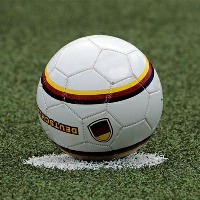The new policy of sports college entrance examination generally refers to that sports are included in the high school academic level qualification examination. Guangdong, Fujian, Jiangsu and other provinces have issued clear notices that sports are included in the high school academic level qualification examination, that is, sports must be taken into the senior high school entrance examination, so that graduation and college entrance examination will not be affected.
What are the new policies for the college entrance examination of physical education
Guangdong, Fujian, Jiangsu and other provinces have issued a clear notice that physical education is included in the high school academic level qualification exam, that is, physical education must be taken into the third year of college, so that graduation and college entrance examination will not be affected.
The extra points for students with sports expertise have been eliminated. No extra points can be given in the college entrance examination. Five types of national college entrance examination bonus items, including sports specialty students, middle school students' Olympic competitions, science and technology competitions, provincial outstanding students, and outstanding deeds in ideology and morality, were canceled.
The newly revised Sports Law has restored the original appearance of the social organizations of individual sports associations, respected their self-discipline management rights in the industry, helped to promote the reform of sports competition management system according to law, added provisions to protect the rights of athletes, and helped to realize the all-round development of athletes. Adhere to the people centered development thought, and emphasize that "people's governments at all levels should strengthen vocational skills training and social security for retired athletes, and provide guidance and services for retired athletes to find jobs and start businesses."
Guangdong, Fujian, Jiangsu and other provinces have issued a clear notice that physical education is included in the high school academic level qualification exam, that is to say, physical education must be taken in the third year of senior high school, so that graduation and college entrance examination will not be affected.
Benefits of Sports Joining the College Entrance Examination
There are at least four advantages to include sports in the college entrance examination:
First, sports quality itself is one of the most important qualities of a person. In terms of percentage, the investigation of a person is more comprehensive, it is easier to highlight the comprehensive quality of a person, and it is more scientific and reasonable.
Second, it is conducive to the combination of work and rest in high school students' learning, and better improve the learning efficiency of other subjects.
Third, it is conducive to strengthening physical exercise, improving physical fitness, and laying the foundation for people's lifelong development.
Fourth, it is conducive to high school to carry out long-term sports activities, improve the quality of sports teaching, and make the school sports work truly implemented.
As we all know, the all-round development of senior high school students, including sports, is an indispensable sport in school life, as well as a prerequisite for strengthening students' physique and guaranteeing their academic achievements. Without good health and a strong body as a guarantee, students cannot successfully complete any learning, and schools cannot achieve educational and teaching goals. It can be said that sports is an indispensable item in school teaching and student learning.
Middle school students are healthy in body and mind, and frustration and hardship education is urgent. In fact, it is long overdue to attach importance to the physical and mental health education of middle school students, and it is an effective, feasible and best way to include it in the compulsory items of the high school entrance examination and the college entrance examination. Only in this way can students, parents, teachers, schools and society attach great importance to it ideologically. Parents, teachers and the society should do a very large systematic project of top priority.

